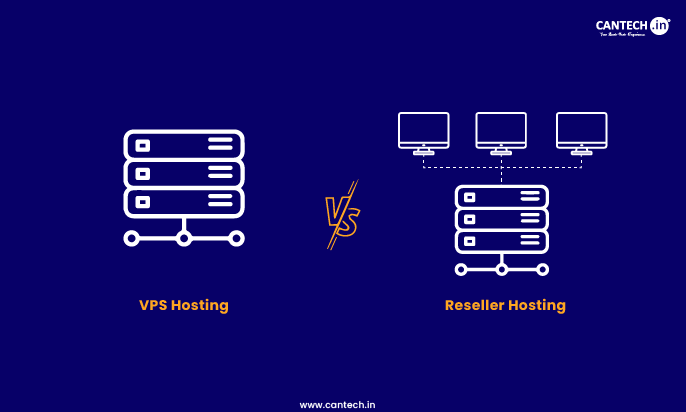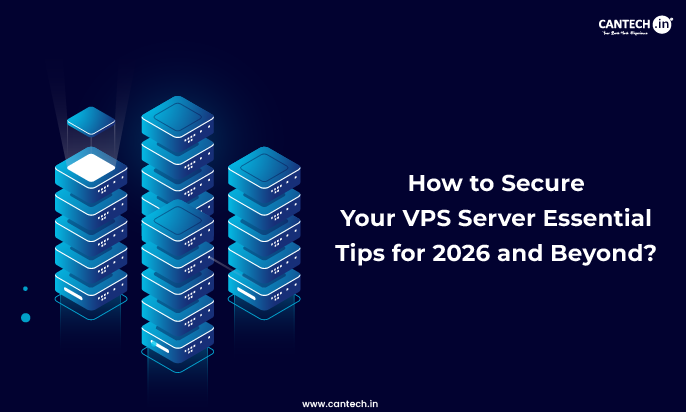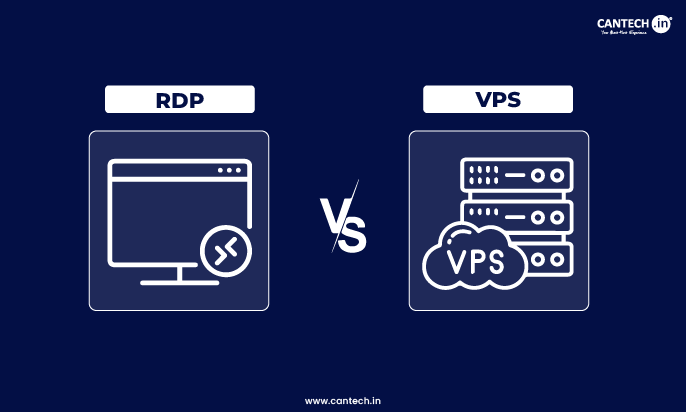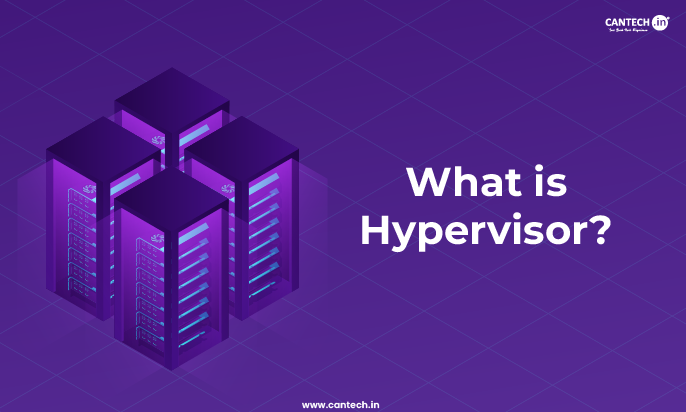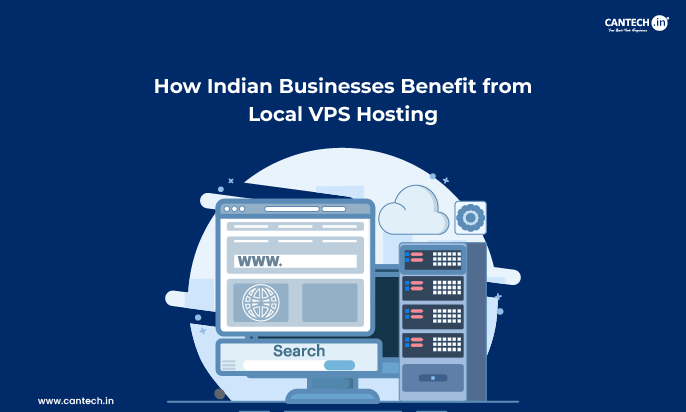With the advancement of technology, web hosting may be seen as the lifeline of any online business or platform. Whether you run an e-commerce store, or even a complex web application, the choice of the right hosting solution is typically the most important thing to consider as it can have a huge impact on the performance of your website. Regardless of the numerous hosting options existing, VPS (Virtual Private Server) hosting still tenaciously remains as one of the most flexible and powerful options. If you’ve ever asked yourself, “What is VPS used for?” or “What is VPS hosting used for?” then this blog is for you.
VPS carries the distinction of being the go-between of shared hosting and dedicated servers. It permits users to experience similar benefits of a dedicated server but with a lower cost. In short, it gives you more control, has better performance, and higher security, which makes it perfect for all kinds of situations. Nevertheless, what exactly is VPS hosting used for? Let’s look closely at its features, use cases, and why VPS might be the best solution for your hosting needs.
In this blog, we will explore everything about what a VPS is used for and its various applications, ranging from hosting websites to managing development environments. By the end, you’ll have a clear understanding of the different VPS use cases and how it can benefit your business or project. So, let’s get started.
What Is a VPS?
Before we go into the specific uses of a VPS, let’s first comprehend what it is. VPS refers to Virtual Private Server, and it functions in a virtualized environment. This is different from shared hosting in which the server resources are used by multiple websites. But in the case of VPS, one has got a dedicated portion of the server to work with—this is made possible by the partitioning of the services, including CPU, RAM, and disk space, while making them affordable VPS hosting than other forms of hosting like shared hosting.
On a Virtual Private Server (VPS) hosting, computing resources are shared among guests by using a hypervisor of a physical server. Each of these environments runs as an isolated server, with its own operating system and the resources that have been allocated to it. What this means is that you can run your own software, install your custom configurations and otherwise, do pretty much the same as you would do with a private server.
Why Choose VPS Servers?
Cost-Effective
VPS hosting stands out for its ability to save money. When picking between shared hosting and dedicated servers, companies and people often struggle to decide. Dedicated servers give you total control and lots of resources, but they cost a lot. This high price makes it hard for smaller companies or new businesses to afford them. VPS hosting fills the gap by giving you features like a dedicated server but for less money. This makes it a great choice if you need more control than shared hosting gives but don’t want to pay for a whole server.
With VPS hosting, you get your own separate server space, with your own CPU, RAM, and storage. This means you get good performance without paying for a whole physical server. For growing businesses that need more resources but want to watch their spending, VPS hosting strikes the right balance between how well it works and how much it costs. You get more resources and control than shared hosting, but you don’t have to pay the high prices that come with dedicated hosting options.
In essence, VPS hosting allows businesses to scale and manage their online presence effectively while keeping costs manageable. It’s a great solution for companies that want the benefits of a dedicated environment but can’t justify the expense. The cost-effectiveness of Managed enterprise hosting makes it a popular choice for businesses at different stages of growth, from start-ups to well-established enterprises looking for a more budget-friendly option to enhance their hosting needs.
Scalability
VPS hosting offers another key advantage is scalability. This makes it a great choice for companies that see changing traffic levels or expect to grow. Your business might expand leading to more visitors on your website or app. When this happens, you’ll need extra server power – things like CPU, memory, and storage – to keep everything running well. VPS hosting lets you adjust these resources as needed, without causing any downtime or problems.
For businesses, the ability to grow smoothly is vital. With VPS hosting, you can start off small using minimal resources. Then, as your website or app needs more, you can add more server capacity. You might need a stronger CPU to handle more visitors, extra memory to run complex programs, or more storage for a bigger database. VPS hosting makes it easy to upgrade your plan without any fuss. This means your website keeps running well even when lots of people visit at once or when your business is growing fast.
Moreover, VPS hosting allows you to scale at your own pace. You’re not locked into a rigid hosting plan that can’t adapt to your needs. Whether you’re scaling up due to a sudden traffic surge or scaling down during slower periods, VPS provides the flexibility to adjust resources as required. This scalability feature is particularly beneficial for businesses with seasonal traffic patterns or those launching new marketing campaigns that may result in temporary traffic spikes.
Control
VPS hosting’s main draw is the control it gives you. Picking a VPS means you get full root access to your server, so you can take charge of your hosting setup. This differs from shared hosting where server settings are often shared among many users. With a VPS, you’re free to customize the server to fit what you need. This control helps businesses with special software needs or those wanting to tweak their server for the best performance.
Root access lets you add your own apps, run your scripts, and even change the operating system to match your needs. For companies using unique software or developers needing a test space for apps, this control is key. You can set up security, boost performance, and make sure your server runs just how you want. This freedom also covers security where you can put in place strong firewalls, SSL certificates, and other safety measures to keep your data safe.
Additionally, having full control over your server environment means that you can better manage resources and optimize your website or application’s performance. Whether it’s allocating more memory to a particular application or fine-tuning your server to handle peak load, the control you get with VPS hosting ensures that your hosting environment is always aligned with your business goals. This level of autonomy is particularly beneficial for tech-savvy businesses or developers who need a more hands-on approach to manage their hosting.
Security
When it comes to hosting, security is number one and VPS hosting delivers on that by providing an isolated and secure environment. Unlike shared hosting where multiple users share the same server and resources, a VPS means your environment is completely isolated from others. This is crucial for businesses that handle sensitive information or transactions as it reduces the risk of security breaches from vulnerabilities in other users’ websites or applications on the same server.
With VPS hosting you can implement your own security measures so you have full control over how your data is protected. You can set up firewalls, install security software and manage access control so your data is safe. This level of customization means you can tailor your security to your business needs. Whether you’re an e-commerce site handling credit card transactions or a corporate website storing sensitive client information, VPS hosting has the tools to keep your data safe.
Furthermore, because your VPS environment is isolated, the risk of attacks spreading from one user to another is minimized. This isolation also allows for better performance, as your resources are not shared with others, meaning that you won’t be affected by the traffic spikes or vulnerabilities of neighbouring websites. The enhanced security and isolation of VPS hosting make it an ideal choice for businesses that prioritise data protection and need a secure, reliable hosting solution to safeguard their online operations.
What is a VPS Server Used For?
A VPS can be used in many ways depending on the business or individual. Below are some of the most common VPS use cases:

1. Website Hosting
One of the main uses of a VPS is for website hosting. Compared to shared hosting, VPS gives you more control, better performance and more reliability. If your website gets moderate to high traffic, a VPS will make sure your site loads fast and can handle traffic spikes without crashing. For online businesses or blogs that require consistent uptime, VPS hosting is a good choice.
2. E-Commerce Stores
Running an e-commerce website requires more than just basic web hosting. E-commerce sites need a high level of security especially when handling payment information. A VPS allows you to install SSL certificates, set up firewalls and handle sensitive customer data securely. Plus with more control over server resources, your site can handle traffic surges during peak seasons and give customers a smooth experience.
3. Hosting Web Applications
If you’re running custom web applications, VPS hosting gives you the flexibility to install any software or framework that shared hosting may not support. You can configure the environment according to your app’s needs and have the control and power to run smoothly. This is why VPS is a preferred choice for developers and tech-savvy entrepreneurs who need more than what shared hosting can offer.
4. Development and Testing Environment
The major use that developers make concerning VPS hosting is creating development or testing environments. These environments can be isolated from the live website so that new features or changes can be developed, tested, or even debugged, on the site, without the user being affected. You have full control of the server and this is the best place to install different development tools because the environment resembles that of your server.
5. Gaming Servers
Most of the gamers and online gaming forums use VPS to play online multiplayers games. A VPS enables one to host game servers since it offers all the requirements for low latency and high reliability. Regardless of the game being Minecraft, Counter-Strike or any other game being played over the internet, a VPS can deliver the performance which is necessary to deliver smooth gameplay regardless of the number of users that are using the particular server at any one time.
6. Email Hosting
Choosing a VPS hosting service for emails enables more control over organizations’ email emulating system. Through VPS, one may create additional email boxes, add higher levels of security, and guarantee that the email platforms are optimum. A lot of organizations as of now use a VPS to host their email accounts because of security and restrictions by email services.
7. Hosting Databases
If you need to operate applications or services which require big databases as well as manage and host them, a VPS server will be perfect. A VPS allows the user to set up the server environment in such a manner that will enable him/her to generate quicker responses in relation to data and even generation of queries. This is especially helpful for those organizations that largely depend their applications on data.
8. Backup Solutions
A VPS can also serve as a secure and efficient backup solution. Businesses can use a VPS to store backup files, system snapshots, and databases. The scalability of a VPS allows businesses to increase storage as needed, ensuring that all critical data is safely backed up.
9. VPN (Virtual Private Network)
Many businesses use VPS to set up their own VPNs. A VPN provides a secure way to connect to the internet by encrypting your connection and masking your IP address. Using a VPS to run a VPN ensures that businesses and individuals can maintain privacy and security when accessing the internet.
VPS Use Cases
- Finance & Banking: VPS is essential in the financial industry for hosting many trading company platforms, executing secure transactions, and managing data.
- Healthcare: Frankly, VPS is capable of affording adequate security and compliance in handling healthcare data such as the patients’ records and other sensitive data.
- Media & Entertainment: This situation is especially relevant for digital services such as streaming platforms and content delivery networks (CDNs), who utilise VPS to ensure seamless streaming/download experience for their customers.
- Retail: Web hosting for e-commerce websites demands reliable and elastic Web hosting services appropriate for managing heavy traffic and offering protection for online transactions.
- Government & Legal: VPS is a trusted, top tier model of hosting legal documents, governmental web applications and other sensitive content.
Conclusion
VPS hosting comes with the following advantages; performance and control, security, and flexibility and scalability. Businesses, developers, and online businesses will find VPS to be a service that can suit their needs in one way or the other. From website hosting to development environment creation a VPS provides the flexibility and control that businesses and projects in today’s world need.
For anyone thinking of switching your hosting plan, Cantech web hosting has the best VPS hosting plans which are effective as well. Here are VPS advantages: great customer service, reliable hosting environment, and adaptive pricing that suits your business needs. Their server solutions in the form of VPS hosting are ideal for anyone who needs to advance site performance, security or just need more control over the host.
So, why wait? Visit Cantech web hosting today and explore their VPS hosting plans. Whether you’re running an e-commerce store, a blog, or a development environment, Cantech’s VPS hosting in India has everything you need to succeed.
FAQs
What is VPS Hosting?
VPS or Virtual Private Server hosting can be defined as the kind that use one server to accommodate multiple servers virtually. There is also disk space, memory, and CPU resources on every VPS so every user gets full control over the optimization and performance as opposed to shared hosting. It works like a miniature dedicated server but at much lower costs and would therefore be suitable for growing companies. Read more about VPS hosting in our detailed guide.
What makes VPS different from Shared Hosting?
Co-location services are different from VPS hosting in that every user has his own resources assigned while shared hosting service implies multiple websites hosted on the same server. The advantage of using VPS is that the users are able to gain better control, flexibility, and even high performance due to the fact that the environment of a user is not mixed with other user environments.
To whom VPS hosting is useful?
VPS hosting is suitable for Webmasters, developers, businesses, or corporate websites that cannot accommodate the shared hosting services but cannot afford dedicated hosting services. That makes it ideal for those who would wish to have full control over their server environment, better performance or expecting an increase in traffic.
Is VPS hosting secure?
Yes, VPS hosting is extremely safe or secure as the clients get their own allocation of the physical resources of the host server and the hosting space is cleared from conflicting applications or malicious programs of other clients. This minimises chances of security threats resulting from risks in other users’ websites.
Can I scale resources with VPS hosting?
Yes, one of the main advantages of VPS hosting is its scalability. As your website or application grows, you can easily upgrade your resources, such as CPU, memory, and storage, without experiencing downtime. This makes VPS hosting a flexible solution for businesses with fluctuating traffic or evolving needs. You can start with a smaller plan and scale up as your requirements increase, ensuring smooth performance even during periods of high traffic.


